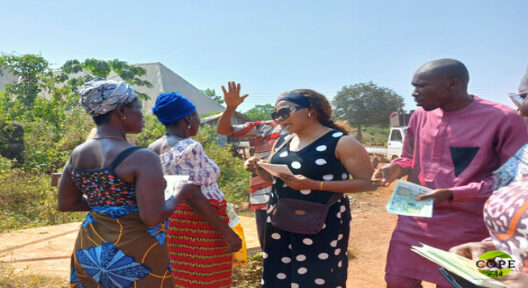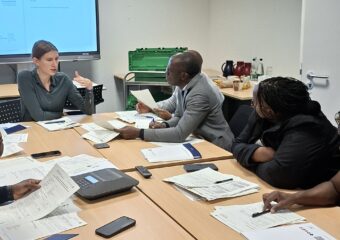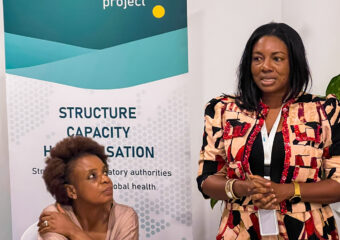One Health Project Makes its Community Entry in Nigeria
In early December 2023, the interdisciplinary consortium of the COPE project met for the implementation of the first project milestone: the entry into a local community in Nigeria. The project is testing a community-based, participatory strategy to reduce the burden of diseases resulting from human-animal-environment interfaces in rural communities with limited resources.

The meetings were preceded by a preparatory phase during which various training sessions, stakeholder visits and the official community entry had been planned. This also included steps of familiarising and awareness work. Team members from all project partners were involved in the planning and implementation: the Nigeria Centre for Disease Control and Prevention (NCDC), Friedrich-Loeffler-Institut (FLI), the National Veterinary Research Institute of Nigeria (NVRI), the University of Ibadan (UI) in Nigeria, and RKI’s Centre for International Health Protection (ZIG).
During an intensive week of work, representatives of the interdisciplinary sub-teams representing epidemiology, veterinary medicine, anthropology and environmental sciences provided insights into their respective areas of work. The aim was to provide mutual training for the team members and to train local research assistants for the subsequent field phase. The latter were familiarised with the epidemiological questionnaires and laboratory samples. Parallel to the training sessions, advocacy visits were paid to important regional stakeholders in whose political and health-related spheres of influence the project activities are carried out.
For the community entry in a rural area in Southeast Nigeria, the project team met with the head of the community and his committee to present the project and to give an outlook on the next project activities. Finally, the community was introduced to the project through printed flyers accompanied by verbal explanations by team members at the local markets as key locations of the community. The Nigerian anthropology team remained in the field after this week to create a trusting foundation for further project work over the next two years and to carry out the anthropological study. All sub-teams intended to return to the community in March 2024 to commence the next project milestone, namely the first risk assessment of One Health challenges in everyday community life.
-

Arrival of project staff in the research region (Source: NCDC)
-

Concentrated group work with representatives from different teams (Source: NCDC)
-

The entire anthropology team ( Source: NCDC)



